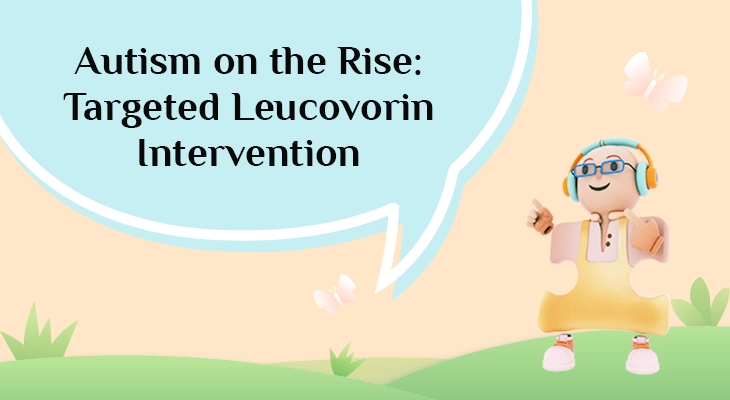
Introduction
Science is replete with delightful and often transformative discoveries, many of which arise not in spite of, but because of researchers pursuing questions slightly askew from their original aims. Indeed, one might argue that scientific progress thrives on this type of convergence. And the history of the Folate Receptor Autoantibody Test (FRAT®) exemplifies this phenomenon. Its development is a fascinating tale of scientific curiosity, unforeseen connections, and profound clinical implications.
As the story of FRAT® begins with decades of research by Dr. Edward Quadros and his team at SUNY Downstate Medical Center (alongside Dr. Vincent Ramaekers in Belgium), their work explored folate’s role in neurodevelopment and the disruptive effects of autoantibodies on folate transport.
The central question driving their research was both simple and profound: If the U.S. food supply is fortified with folic acid (a synthetic form of vitamin B9) to prevent neural tube defects (NTDs), why do these birth defects still occur? While folate fortification had reduced NTD rates, a significant number of cases persisted. Clearly, something in folate metabolism was a miss.
This inquiry led to a groundbreaking discovery: folate receptor autoantibodies (FRAAs) were detected in women with a history of NTD pregnancies. Published in the New England Journal of Medicine, this finding revealed an autoimmune mechanism impairing folate delivery to the fetus—a previously unrecognized contributor to NTDs.
But the story didn’t end there.
When researchers turned their attention to children, they encountered another mystery: a subset of infants who developed normally at first, only to experience sudden and severe developmental regression which included cognitive impairment, movement disorders, seizures, and speech delays and loss. These children also tested positive for FRAAs, linking the autoantibodies to a new defined syndrome termed cerebral folate deficiency (CFD).
Strikingly, CFD syndrome symptoms seemed to overlap with those of autism spectrum disorder (ASD). Even more remarkable, after initially screening children with ASD, approximately 70% of these children were testing positive for FRAAs. The implication was clear: these autoantibodies were obstructing folate transport to the brain, with detrimental consequences. Thereafter, continuous samples have been sent by physicians treating children with autism.
Beyond samples in children with autism and developmental delays, FRAT® application has also quickly expanded in depression, epilepsy, and subfertility.
Now surpassing over 21,000 FRAT® samples that have been analyzed, a significant percentage of children with autism or developmental delays have tested positive for folate receptor autoantibodies. It is estimated that this percentage is well over 60%.
More promisingly, supporting evidence continues to mount about the importance of screening for folate receptor autoantibodies:
- Animal studies demonstrated that FRAA exposure in pregnancy led to fetal brain malformations—reversible with folinic acid.
- Clinical trials showed that 75% of children with ASD had FRAAs, and folinic acid treatment improved language and social skills.
- Further research linked FRAAs to subfertility, preterm birth, and neuropsychiatric disorders.
The above scientific data reinforces the fact that folate receptor autoantibodies impede proper folate transport through the folate receptor alpha, thereby leading to neurodevelopmental/neuropsychiatric disorders.
Current Applications and Impact
Today, FRAT® is a vital diagnostic tool worldwide, enabling physicians to:
- Screen children with ASD, developmental delays, or seizures.
- Evaluate women with NTD pregnancies or subfertility.
- Assess patients with treatment-resistant depression or neurodegenerative disorders.
A positive FRAT® result often guides folinic acid therapy (folinic acid bypasses blocked folate receptors), offering hope where traditional treatments may have failed.
Future Directions
The journey of FRAT® is far from over. Ongoing research continues to explore:
- Maternal FRAA screening to prevent developmental disorders.
- Folate receptor autoantibodies in subfertility.
- Folate receptor autoantibodies in Multiple Sclerosis.
- Genetic and environmental factors influencing FRAA prevalence.
What began as an investigation into folate metabolism has blossomed into a transformative diagnostic—one that underscores how science, when guided by curiosity and open-mindedness, can illuminate hidden pathways to healing.



